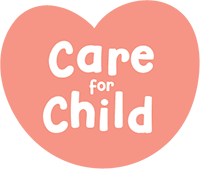"The teenage years can be challenging to manage because young people's ideas, values, and beliefs may differ from those of their parents; however, this is a normal part of gaining independence. As a result, having healthy and trusting parent-teen communication becomes essential for better understanding your kid in various situations.
When they are growing, staying close becomes difficult. When teens reject what they perceive to be parental interference, they are not always generous. While they're an open book to their friends, with whom they constantly communicate via text messages and social media, they may go silent when asked how their day went by mom. This article by
Care for Child will help you learn more about teenage communication problems and how parent-teenager communication activities can help.
5 Effective Parent-Teen Communication Tips
It is essential to learn communication skills for teens to maintain healthy relationships. Here are some of the 5 most effective tips that can help you to improve your communication with your teen.
1. Listen More, Lecture Less
If you're interested in what's happening in your teen's life, direct questions may not be as practical as simply sitting back and listening. Active listening helps children feel heard, understood, less alone, and more at ease. Remember that even a casual remark about something that happened during the day is their way of reaching out, and you'll hear more if you remain an open, active listener.
2. Demonstrate Trust
Maintaining eye contact, affirming nods, a concerned look, or encouraging smiles are all small gestures that demonstrate your trust and belief in them. Allowing your child to know you believe in them will boost their confidence and enhance their chances of succeeding.
3. Don't Blame Your Teen
Teenagers will make mistakes, and that is perfectly normal. It's how they learn and grow that is more important.
When your teenagers come to you for advice, please resist the urge to blame or scold them for whatever has happened.
Instead, be compassionate and understanding. Tell your teenagers that it's okay if they make a mistake. Assist them in processing their emotions and reflecting on what they've learned due to the situation. They will feel more at ease sharing information with you as a result.
4. Do Things Together
Talking is one of many
communication activities for teens. As a parent, it's ideal that during these years, to spend time doing things you both enjoy, such as going on a trip together, cooking, hiking, or going to the movies, without discussing anything personal. However, your young kids need to understand that they can be close to you and share positive experiences without fear of being questioned.
5. Understand your teen's feelings
This can help teenagers accept their emotions and feel safe enough to express themselves. For example, if they are stressed about something, you could say, ‘Understandably, you're stressed right now; I'd feel the same if it were me.’ or you could also say, ‘sorry to hear that you're stressed. If I were at your place, I would feel the same way and then work together to solve a problem or situation that is bothering your teen.
Bottom Line
Communication between parents and teenagers is essential. It should include more than just sharing hard feelings; it should also involve transferring funny things, what went well during the day, and opportunities to laugh together and be affectionate in whatever way is comfortable for your teen. Having fun and laughing hard together is a great way to strengthen your relationship with your teen as a parent!
"
